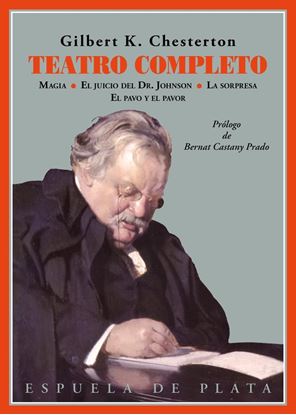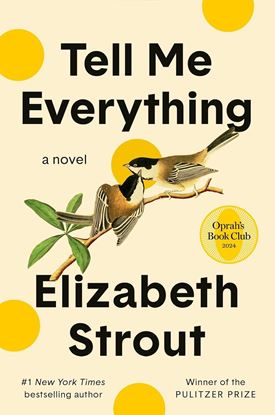

TEATRO (RAE)
Edición de Alberto del Río Nogueras.El volumen 19 de la BCRAE reúne la totalidad del teatro enciniano, formado por las ocho églogas incluidas en el Cancionero de 1496 y las seis piezas compuestas a partir de esa fecha.
La obra de Encina compendia y eleva a la excelencia la tradición dramática medieval, en la que injerta las perspectivas amorosas propias de la lírica cancioneril y de las ficciones sentimentales, acordes con el gusto palaciego del tiempo y refinadas con ciertos aires mitológicos durante su etapa italiana.
Nadie le discute el trono de los inicios de nuestra escena, aunque la posteridad lo olvidase y tuviese que esperar a la época de las vanguardias, al calor de su reivindicación como músico, para cautivar con las mismas armas literarias de sus comienzos: un estudiado primitivismo que logra, bajo disfraz pastoril, calar hondo en las conciencias.
Para establecer el texto crítico de la presente edición se ha consultado la totalidad de testimonios antiguos, algunos de ellos conservados en ejemplar único.
1,995
1,596
TEATRO COMPLETO
Con la presente edición de su Teatro completo, que permite, por primera vez, la consulta de la edición facsimilar y dactilográfica, realizamos un extenso recorrido que se inicia con Los Topos y termina con La piedra cansada. En total son doce obras póstumas en las que las influencias de autores como Piscator, Eisenstein, Kirshon o Tairov van a ser decisivas a la hora de dar respuesta a una nueva concepción de los espacios escénicos, al igual que ya estaba operando desde su poesía ese «asalto al lenguaje», «el habla plural» que le convertiría en uno de los herederos de la universalidad.
1,350
1,080
TEATRO COMPLETO
Además de haber publicado cuentos, novelas, poemas y ensayos, Gilbert Keith Chesterton también escribió teatro. Lo hizo a instancias de su buen amigo George Bernard Shaw, quien, después de insistirle mucho, logró convencerlo de que tenía algo que aportar al teatro inglés. En este volumen de Teatro completo se reúnen las únicas cuatro obras teatrales que Chesterton escribió: Magia (1913), El juicio del Dr. Johnson (1927), La sorpresa (1932), y el sainete navideño El pavo y el pavor (1930). En todas ellas se desarrollan de formas inesperadas algunas de las características fundamentales de su obra, como son su estilo paradójico, su antitradicionalismo acérrimo, su liberalismo radical y su capacidad de asombro. Sin duda, ningún género mejor que el del teatro para encarnar el espíritu de un autor que creía que tanto más contradictorias son las cosas cuanto más nos acercamos a la verdad. «Necesario, divertido, estimulante, a ratos perturbador y a ratos una pura majadería, este libro no solo completa el rompecabezas literario que representa G. K. Chesterton, sino que abruma con chispazos e ideas que atañen a la más inmediata actualidad política y religiosa. Increíble incluso para ser Chesterton». Jordi Gracia
1,450
1,160
TEATRO COMPLETO
T.S. Eliot (1888-1965) sigue siendo reconocido como uno de los grandes poetas del siglo XX. Deslumbró con sus primeros poemarios (Prufrock y otras observaciones, Poemas) y revolucionó la misma noción de poesía con La tierra baldía, bandera de las vanguardias. Como crítico y editor, priorizó la objetividad y la impersonalidad artísticas, contribuyendo a forjar los gustos y percepciones estéticas de su tiempo. A partir de su adhesión al anglocatolicismo y durante las décadas convulsas que desembocaron en la Segunda Guerra Mundial, evolucionó hacia lo que podríamos denominar «mística moderna» (Miércoles de ceniza, Cuatro cuartetos). Hacia el final de su carrera, deseoso de dar una mayor repercusión social a su poesía, la trasladó a los escenarios.
Interesado en el teatro desde siempre, Eliot se entregó a su nueva faceta de dramaturgo con humildad, pero con la aspiración de acuñar una poesía dramática genuinamente moderna para un público contemporáneo. Su teatro en verso tuvo un éxito considerable durante las décadas de los treinta y los cuarenta, con obras como La piedra (publicada ahora, en su versión completa, por primera vez en español), Asesinato en la catedral, Reunión familiar o El cóctel. En los cincuenta siguieron dos comedias (El secretario particular y Un político venerable) que confirmaban la apuesta de Eliot por un teatro comercial.
La obra dramática de Eliot transita, sin perder la coherencia de una visión del mundo crítica y trascendente, por terrenos tan distintos como la recreación histórica, la evocación del teatro clásico, la comedia de salón y la farsa. Las nuevas traducciones, introducciones y notas de esta edición la reivindican en su singularidad, variedad y capacidad de sorprender. El teatro de Eliot, injustamente olvidado, representa la continuación de la imaginación poética y el compromiso moral de un poeta imprescindible que se volvió «hombre de teatro» en una época de transformaciones fascinantes en las artes escénicas, en un período fronterizo de transición de lo moderno a lo posmoderno.
1,850
1,480
TEATRO MAYOR
Estamos ante un teatro escrito en la década de los cuarenta del pasado siglo, muy superior al escrito en España en esos años, salvo muy escasas excepciones. Un teatro del que, sin saberlo, tomaron el relevo jóvenes como Antonio Buero Vallejo y Alfonso Sastre, que, por supuesto, no lo habrían leído. Pasado el tiempo, queda la literatura. Aquí está, para que se considere su calidad, su interés, su hondura y, tal vez, su posible vida sobre los escenarios. La literatura, esa «historia de los que no salen en los libros de Historia», es a menudo el modo más hondo de mostrar lo que somos, lo que es nuestro mundo. Y los personajes de Max Aub no pueden ser más humanos, buenos, malos, estúpidos, inteligentes, generosos, miserables… personas. Siquiera, por fragmentos, en las escuelas, esta obra debería sonar en los oídos de nuestros jóvenes.
2,650
2,120
TELL ME EVERYTHING
With her remarkable insight into the human condition and silences that contain multitudes, Elizabeth Strout returns to the town of Crosby, Maine, and to her beloved cast of characters—Lucy Barton, Olive Kitteridge, Bob Burgess, and more—as they deal with a shocking crime in their midst, fall in love and yet choose to be apart, and grapple with the question, as Lucy Barton puts it, “What does anyone’s life mean?”
1,400
1,120














